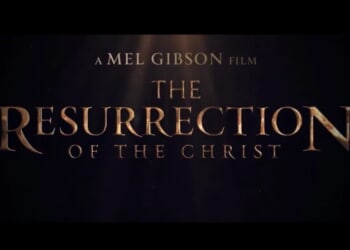Prominent universities across America are now adopting a new admissions process that is remarkably similar to the Chinese Communist Party’s Social Credit System.
After the Supreme Court ruled that colleges could no longer use affirmative action in admissions, some institutions of higher learning pivoted and searched for a new way to seek ideological purity in their incoming students. A collective of prestigious universities may now have found their answer.
Salman Khan, founder of the online education platform Khan Academy, is the co-founder of the online peer-tutoring service Schoolhouse.world. This platform recently began hosting private debates among teenagers in a so-called effort to encourage “civility. (RELATED: Trump Admin Freezes $339 Million From UCLA Over Civil Rights Violations)
Some universities are using these debates to determine the students who will be admitted. The concept seems harmless enough on the surface. However, the implementation appears to be a way to restrict students with certain opinions from the admissions process to more prestigious universities.
Khan’s platform has students rate each other on their debates, also referred to as “Dialogues.” Participants debate each other on controversial issues, such as affirmative action, immigration, gun control, policing, and the “Israel Palestine Conflict.” Their debate partners then provide them with written feedback “on skills like active listening and how well they challenged their own views,” Education Week reported.
This feedback is then saved as part of a participant’s portfolio of “Dialogues.” The portfolio serves as a “civility transcript” that details feedback from discussions, the number of debates, topics covered, and even the number of hours in these discussions for each person.
Eight colleges and universities have already signed on to use these portfolios as part of their admissions, including Columbia University, Johns Hopkins University, Massachusetts Institute of Technology, University of Chicago, and Vanderbilt University.
When asked for comment on how these portfolios are weighed in the admissions process, none of the eight universities responded.
With peer feedback serving as the crux of these Dialogue portfolios, universities can now easily pick students that mirror their own worldview and disregard students who may be deemed potentially problematic because of their personal views and opinions.
Jim Nondorf currently serves as the vice president for enrollment and student advancement and the dean of college admissions and financial aid for the University of Chicago. He appeared to make this point clear by stating that he did not “want brittle students” at his college. He said that he wanted students who would “add to the conversation on campus, but do it in the right way.”
Depending on the perspective, the “right way” can be interpreted as having the same political ideology as the decision makers at an institution of higher learning. The admissions team at any university can go through peer reviews and topics in applicants’ Dialogue portfolios and simply filter out the students with differing viewpoints.
Considering that Schoolhouse.world is a proponent of diversity, equity, and inclusion (DEI) initiatives, the organization’s neutrality is also of serious concern. The platform has a DEI lead to head equity initiatives and openly claims that the team will “prioritize equity across the entire organization.”
Khan’s other endeavor, Khan Academy, is also a proponent of DEI. In 2022, Khan Academy announced the hiring of a new “Diversity, Equity, Inclusion and Belonging” director. This seems to be Khan’s political ideology merging with his businesses.
How can students trust Dialogue portfolios as a reliable reference in the application process if Khan cannot separate ideology from his own platforms?
As the situation appears, Dialogue portfolios are nothing more than a system modeled after the Chinese Communist Party’s Social Credit System that essentially blacklists Chinese citizens from society if they hold the wrong opinions.
Under China’s system, citizens can gain a bad social credit score by daily activities deemed negative by the government. This can include posting opinions on social media or making too many frivolous purchases. A negative social credit score can lead to bans from traveling, throttled internet speeds, or rejections from universities – which sounds eerily similar to the intent of Dialogue portfolios.
The last thing college applicants in America need is a dystopian measure to filter out perceived wrongthink. The Supreme Court’s decision to ban affirmative action for universities was to help ensure everyone has an equal opportunity.
These “Dialogues” appear to be a purity test that is even worse than affirmative action.
While affirmative action is awful, at least there was a chance for universities to admit students of differing viewpoints. Dialogue portfolios give universities the explicit power to reject students solely because of the opinions they hold.
Casey Ryan is a writer and investigative reporter at Defending Education.
The views and opinions expressed in this commentary are those of the author and do not reflect the official position of the Daily Caller News Foundation.
All content created by the Daily Caller News Foundation, an independent and nonpartisan newswire service, is available without charge to any legitimate news publisher that can provide a large audience. All republished articles must include our logo, our reporter’s byline and their DCNF affiliation. For any questions about our guidelines or partnering with us, please contact licensing@dailycallernewsfoundation.org.





![Gavin Newsom Threatens to 'Punch These Sons of B*thces in the Mouth' [WATCH]](https://www.right2024.com/wp-content/uploads/2025/08/Gavin-Newsom-Threatens-to-Punch-These-Sons-of-Bthces-in-350x250.jpg)
![ICE Arrests Illegal Alien Influencer During Her Livestream in Los Angeles: ‘You Bet We Did’ [WATCH]](https://www.right2024.com/wp-content/uploads/2025/08/ICE-Arrests-Illegal-Alien-Influencer-During-Her-Livestream-in-Los-350x250.jpg)








